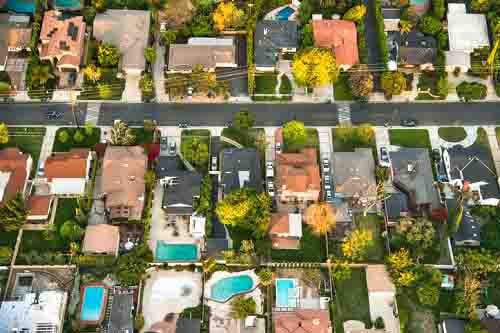Housing experts say the city could be sidestepping the supply problem by chasing "short-term" gains


Toronto’s city council is set to meet this week to approve its operating budget for 2021, and on the table is a so-called “luxury home tax” for high-value homes.
The controversial proposal calls for a 1% increase on the municipal land transfer tax (MLTT) for homes priced $2 million and above, which is currently pegged at 2.5%. Proponents of the measure say the increase could potentially add more than $18 million in revenue to the city’s coffers.
“It’s really about looking at where we can generate revenue to pay for the things that we need here in the city of Toronto,” Toronto councillor Brad Bradford told CTV News Toronto. “We have an affordable housing crisis. We certainly have a lot of issues related to transportation and mobility.”
Read more: Toronto’s real estate board releases projections for 2021
However, Lisa Patel, president of the Toronto Regional Real Estate Board (TRREB), expressed concern that a tax increase would “further constrain the supply of homes for sale in Toronto, thereby exacerbating housing supply and affordability challenges, especially for those purchasing modest homes.”
“TRREB understands and appreciates the budgetary challenges faced by the City of Toronto, but addressing those challenges in a way that would make housing even less affordable is the wrong path forward. In fact, it is a step backward,” said Patel. “While it may be tempting to raise land transfer taxes on buyers of homes priced over $2 million, city council should remember two things: First, an average priced home in Toronto last year was almost $1,000,000, and this typically represents a modest home by Toronto standards. The average price of a detached home in Toronto was almost $1.5 million in 2020.”
“Secondly, any increase to the already high land transfer taxes in Toronto could discourage move-up buyers from listing their homes for sale, with many of these households choosing to renovate instead,” added Patel. “This means more modest homes will not become available for those looking for more affordable options.”
According to Don Kottick, chief executive officer at Sotheby’s International Realty Canada, a similar situation occurred in Vancouver, where a luxury homes tax “stalled” the city’s luxury housing market.
“The housing market is a continuum; when you impact one area of the spectrum, it reverberates throughout the entire spectrum,” Kottick told Toronto Storeys. “The introduction of the luxury tax in Vancouver had unintended negative consequences for many homebuyers, not just the affluent. It stalled activity in the market for luxury housing over $3 million, therefore many people delayed decisions to move up or out and their homes did not come on the market.”
Meanwhile, TRREB CEO John DiMichele said that the proposed increase in the MLTT sidesteps the bigger problem of dwindling housing supply in order to chase “short-term” revenue gain.
“TRREB has repeatedly informed all levels of government that the cause of housing affordability challenges is an inadequate supply of housing,” said DiMichele. “City council should be doing whatever it can to increase the supply of homes for sale. Adding more cost to home purchases, regardless of what the home’s price point is, will tighten the housing market even more by forcing more people to be stuck in place, instead of selling what could have been an affordable option for some home buyers.”
“City council must resist the temptation of short-term gain in tax revenue, and instead continue their proactive work on promoting the development of more missing middle housing in Toronto neighbourhoods,” concluded DiMichele.



